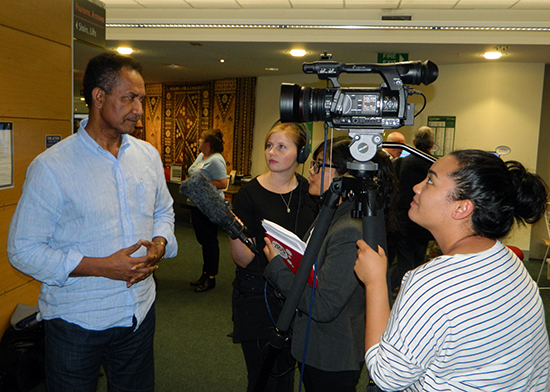
AUCKLAND (Pacific Media Watch): A provision in the Fiji Electoral Decree 2014 has stirred debate among some university academics.
Section 115 of the decree restricts any person or group receiving funding from foreign governments or from any organisation from conducting or participating in any campaigns, meetings, interviews, or any public forum discussing the elections.
A senior lecturer in Pacific Studies at the University of Auckland's Centre for Pacific Studies, Dr Steven Ratuva, believes this particular provision in the Electoral Decree is unfair and undermines the spirit of democracy.
“The whole idea of moving towards elections or democratisation, after the Fiji coup of 2006, is to bring in different players to participate through the process of democratic discussion," he said.
“I think the broader participation of people in terms of what has to be done [and] what Fiji should be, should be brought out to the public arena. This should be discussed fully and in a very transparent way.
“Some people will always argue later that this particular provision is going to undermine any claim that the election was fair and free.”
This particular component in the decree also threatens civil society organisations - one of the most powerful pillars of democracy, said Dr Ratuva.
'Extra power'
“They provide that extra fight power to create that democratic space much more together with the media. So I hope they do something about that particular provision in the decree.”
Broadcaster and fellow in journalism Patrick Craddock, who heads the journalism programme at the University of the South Pacific, says NGOs want Section 115 changed before the election, but the chances of this happening are uncertain.
“It’s restrictive, no doubt about that,” Craddock said.
If the new government after the election did not amend some of these decrees imposed by the military backed government, including the Media Industry Development Decree 2010, media in Fiji would struggle to do their jobs properly, Craddock said.
“I think all media here and the human face of the media - the journalist - will have a hard time trying to do their job well. Democracy requires many voices. If you shut some people up your democratic credentials become degraded.”
This work is licensed under a Creative Commons Attribution-NonCommercial 3.0 New Zealand Licence.




